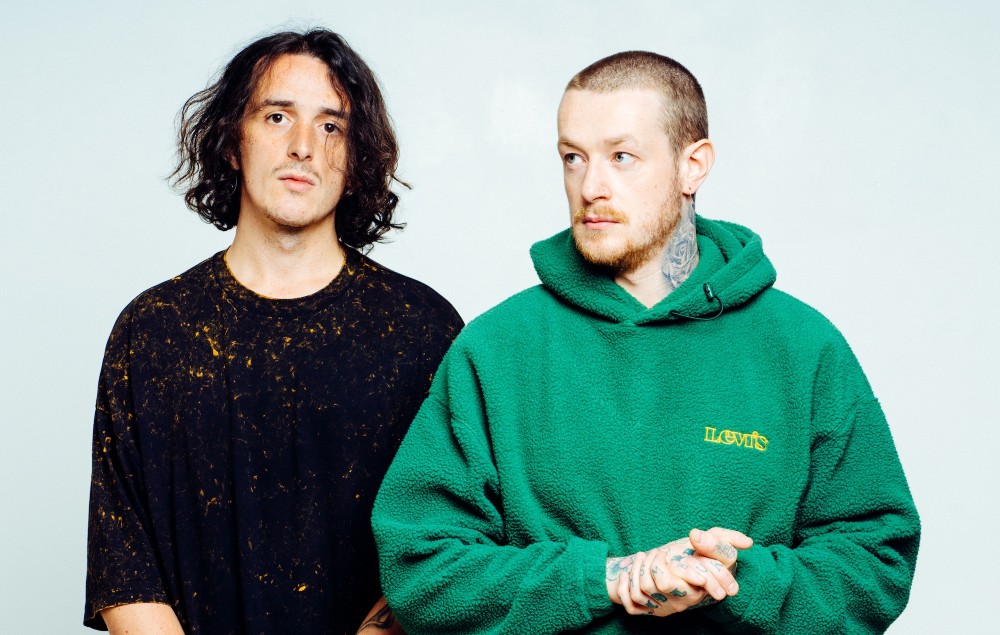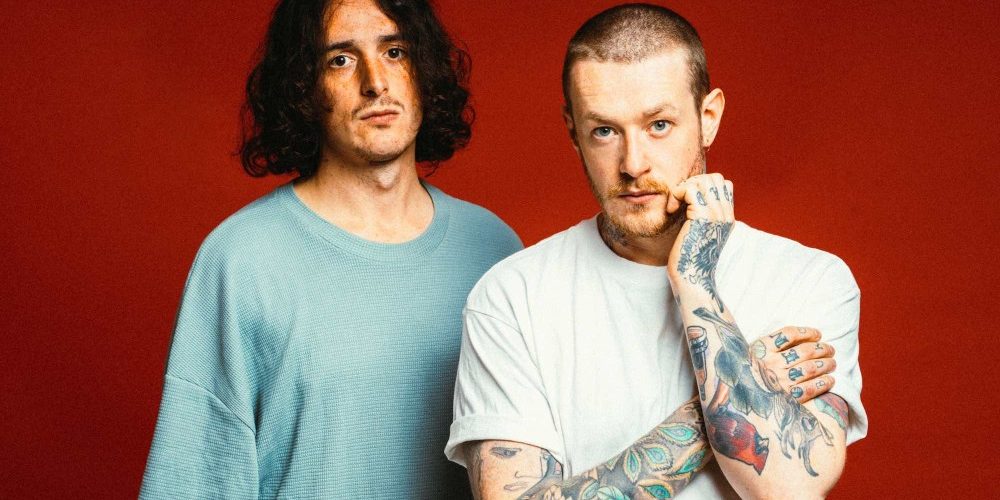Deaf Havana: “I’ve never known what we are, but now I’m comfortable with that”
Deaf Havana have spoken to NME about their sixth album ‘The Present Is A Foreign Land’ and why the record is a new beginning for the band.
After the Norfolk five-piece released their electro-pop album ‘Rituals’ in 2018, things started falling apart for the band. A distinct step away from the indie rock of 2017’s ‘All These Countless Nights’, vocalist James Veck-Gilodi described that album as “a slow death” for Deaf Havana.
“I learnt so much writing that album but that excitement quickly became cynicism,” the singer’s brother and guitarist Matty told NME. “We had been so focused on pop hooks, the soul wasn’t there.” Touring felt “empty” and by the time the band had finished that run of shows at the end of 2019, they were all confident that Deaf Havana was over.
“Towards the end, there was nothing positive about the band,” James explained. A meeting in January 2020 confirmed it, with a farewell tour arranged to clear their remaining debts.
Then COVID happened, and Deaf Havana had a chance to rethink their priorities. When it looked like touring might be possible, talk of those farewell shows began again. They realised selling tickets might be easier if there was a new song to go with it and, fortunately, Matty had spent lockdown treating writing like a nine-to-five job. After not speaking for a year, Matty and James went into the studio to record ’19 Dreams’, while producer Mike Horner suggested an acoustic song to go with it.
The next day, James came into the studio with the band’s latest single ‘Nevermind’ and, a few weeks later, they had an entire album. “I wrote ‘Nevermind’ in 10 minutes,” he told NME. “It’s like it was just waiting to pour out of me.” Like most of his material on ‘The Present Is A Foreign Land’, it was written about a particularly terrible six-month stint where his “entire life collapsed”. “I was depressed, I was alone, I didn’t know what I was doing,” he said. “Unsurprisingly, the lyrics are pretty miserable, but there’s a bit of hope in there.”
“Our entire ethos used to be, ‘let’s just have a laugh and a pint’,” Matty explained. “On tour, there’s no real support for your mental health and when you’re always in a different city, surrounded by people you don’t know, you craft a comfortable little hole of six pints every day. That becomes the norm.”
“But then it starts bleeding into your home life until it gets too much and it all falls apart,” added James. “For me, misery breeds creativity, so I had a lot to write about.”
He continued: “‘Nevermind’ is pretty heavy really if I think about what I’m actually singing about. I still don’t really think I’ve fully comprehended what that song means to me. It helped me come to terms with that period of my life. Hopefully, that song can help people get through a tough time or make them feel like they’re not on their own.”
‘The Present Is A Foreign Land’, which arrives next week (July 15), is a 50/50 collaboration between Matty and James, with the other members of the band leaving during lockdown due to “other commitments”. Despite the upheaval, the guitarist described making this album as “the most fun I’ve ever had”. “We were working for 14 hours a day, having these creative conversations,” he said. “It’s super liberating, being able to take these thoughts, fears or worries that you have in your head and turn them into something digestible.”
Deaf Havana have a long-standing history of changing sound on every record. They’ve tackled post-hardcore (‘Meet Me Halfway, At Least’), folk (‘Old Souls’), indie-rock (‘All These Countless Nights’) and electro-pop (‘Rituals’). ‘The Present Is A Foreign Land’ sounds like a greatest hits, pulling influence from all those different eras.
“We didn’t know if we were ever going to release this album,” said James. “So we didn’t really care. We were just writing music for the sake of writing it, which is probably why it sounds like a mixture of everything. We were just writing the songs we wanted to hear.”

The singer continued: “I need to get back to that again. Now stuff is getting more serious again, I’m starting to freak out and going back to treating this band like a job, which has always been my downfall.”
Deaf Havana’s Instagram bio proudly reads “New Beginnings” and James explained a fresh start was a necessity. “Otherwise, we’re just running in circles and making the same mistakes again. Even though I can get in my own head about things, I am optimistic and excited about where this goes next.
“My ambitions are very much always the same. I just want to grow Deaf Havana more, appeal to more people and be able to keep doing it.”
James was surprised their comeback has been met with as much warmth as it has. “I thought people would have forgotten about who we were,” he said. “We’re all guilty of it. I wouldn’t have blamed anyone for moving on, because it’s an obvious thing to do.”
So why, after 15 years, a constantly changing sound and an unwavering sense of self-destruction, do people still care about Deaf Havana? “No matter the level of bullshit that’s been going on in our lives, all of our songs – even the ones I’m most embarrassed about and would never show anyone – have an honest message to them, which anyone can connect with,” explained James. “I think that’s what’s keeping people interested.”
Back in a good place with the band, the duo have already started writing music for the next album. “Nothing is radically different, it’s just more refined and better,” said Matty.
With ‘The Present Is A Foreign Land’, there’s a confidence to Deaf Havana that they’ve never really had before. “The main issue has always been that I don’t really know who I am and I’ve always wanted to be a million different things at the same time, which explains all the very different albums,” James said. “I’ve never known what we are. But now I’m comfortable with that, so I’m happy to just write and whatever comes out comes out.”
